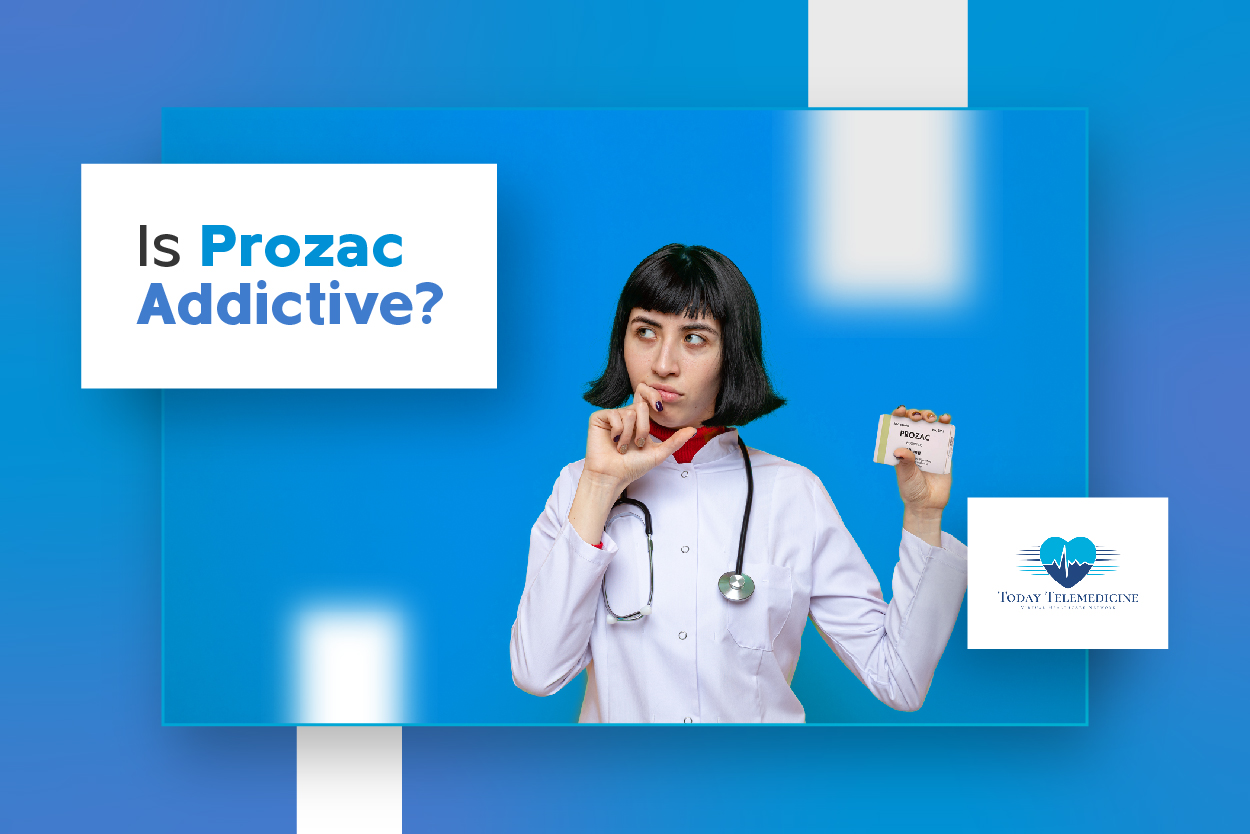Is Prozac Addictive? Let the scripture unveil the hidden information!
Are you fighting with mental instability and taking a step towards your healing journey?
Well, kudos to you!
This precise guide will help you understand the formulation, usage, and side effects of the most popular antidepressant known as Prozac.
Can Prozac Be Abused?
Before plunging into the details of medicine, it is essential to know whether the ailment is going to be helpful or a blessing in disguise, raising the question; can you abuse Prozac?
While addiction is not typically associated with Prozac, it’s essential to understand the potential risks and effects of long-term usage.
Common Uses of Prozac
Prozac is a go-to choice for many doctors due to its effectiveness in managing various mental health conditions, including:
- It helps alleviate symptoms of depression by restoring the balance of serotonin, a neurotransmitter that plays a crucial role in regulating mood.
- Prozac is also prescribed for anxiety disorders, such as panic disorder and social anxiety disorder.
- The ailment can aid in reducing the frequency and intensity of panic attacks.
The Mechanism of Action of Prozac
Prozac works by inhibiting the reuptake of serotonin, a neurotransmitter, which increases its availability in the brain.
This aids in regulating mood and improving symptoms of depression and anxiety.
The medication gradually builds up in the system, usually taking a few weeks to reach its full effect.
By boosting serotonin levels, Prozac can enhance the communication between nerve cells in the brain, which results in a more stable mood. While it’s crucial to maintain an appropriate balance, Prozac does not create an excessive surge of serotonin that could lead to addictive behaviors.
Potential Side Effects of Prozac
Like any medication, Prozac may have side effects. The most common ones include:
- Nausea
- Headache
- Serotonin addiction
- Insomnia
- Sexual dysfunction
- Prozac abuse
- Fluoxetine Addiction
However, these side effects are generally temporary and diminish over time as the body adjusts to the medication.
Rare but Serious Side Effects
While rare, some serious side effects associated with Prozac should be mentioned.
Prozac combined with Wellbutrin can cause allergic reactions, serotonin syndrome (a potentially life-threatening condition), and an increased risk of suicidal thoughts, especially in children and young adults.
However, it’s essential to note that the benefits of treating underlying mental health conditions often outweigh the risks of these potential side effects.
In any case, if you have any concerns or questions about Prozac or any medication, it’s always best to consult with a healthcare professional who can provide personalized advice.
Studies and Research on Prozac Addiction
Numerous studies have been conducted to understand the addictive nature of Prozac specifically.
So far, these studies have not found any evidence to suggest Prozac addiction in the traditional sense.
Prozac is classified as a selective serotonin reuptake inhibitor (SSRI), a type of antidepressant that works by increasing the levels of serotonin in the brain. SSRIs are generally considered non-addictive and are a widely accepted treatment for depression and anxiety disorders.
Safe Guidelines for Prozac Use
To guarantee the innocuous and active usage of Prozac, it’s indispensable to follow endorsed guidelines.
Take one Prozac a day, or exactly as prescribed by your healthcare provider. Do not exceed the recommended dosage.
Prozac is one of the most commonly abused antidepressants so crucial not to share your medication with others, as Prozac is prescribed based on individual needs and circumstances.
Importance of Open Communication with Healthcare Providers
Maintaining open and honest communication with your healthcare provider is essential to managing your Prozac use and preventing addiction.
They can help monitor your progress, adjust the dosage if necessary, and address any concerns or questions you may have.
Your healthcare provider must be present to assist you throughout your treatment, so don’t be hesitant to reach out to the experts.
Final Thoughts – Is Prozac Addictive?
In conclusion, while Prozac is not considered addictive in the traditional sense, it is important to be aware of the potential for dependency and withdrawal symptoms.
The mechanism of action of Prozac in the brain, its effects on serotonin levels, and individual factors can contribute to the development of a reliance on the medication.
Remember, addiction serotonin is a complex condition that involves factors beyond physical dependence.
Following the Prozac patient assistance program and managing your dose will minimize the risks and maximize the benefits of this widely prescribed antidepressant.
However, with proper management, open communication with healthcare providers, and adherence to safe guidelines, the risk of Prozac drug abuse can be minimized.
People must be informed about the potential dangers and benefits of Prozac to make educated decisions about their mental health treatment.
Seeking professional guidance and support is important for a holistic approach to managing Prozac use and promoting overall well-being.
FAQs
How to know if Lexapro dose is too high?
One key sign of a potentially high dose of Lexapro is experiencing severe anxiety, restlessness, agitation, insomnia, or even feelings of confusion or disorientation.
What is Prozac and autism lawsuit?
In recent years, there has been some controversy surrounding Prozac and its potential link to autism.
Some people have filed lawsuits claiming that the use of Prozac during pregnancy or in children can increase the risk of autism spectrum disorders (ASD).
These lawsuits allege that the manufacturers of Prozac failed to adequately warn patients and healthcare providers about this potential side effect.
It’s important to note that while these lawsuits exist, there is currently no conclusive scientific evidence linking Prozac use to autism.
The medical community continues to debate this topic and conduct research studies to determine any potential association.
Is Prozac a Narcotic?
Prozac, also known as fluoxetine, is not classified as a narcotic.
Can I abruptly stop taking Prozac without experiencing withdrawal symptoms?
Abruptly stopping Prozac can lead to withdrawal symptoms.
It is recommended to consult with your healthcare provider before discontinuing the medication.
They can guide gradually tapering off Prozac to minimize the likelihood and severity of withdrawal symptoms.
Is Prozac controlled substance?
No, Prozac (fluoxetine) is not categorized as a controlled substance.





